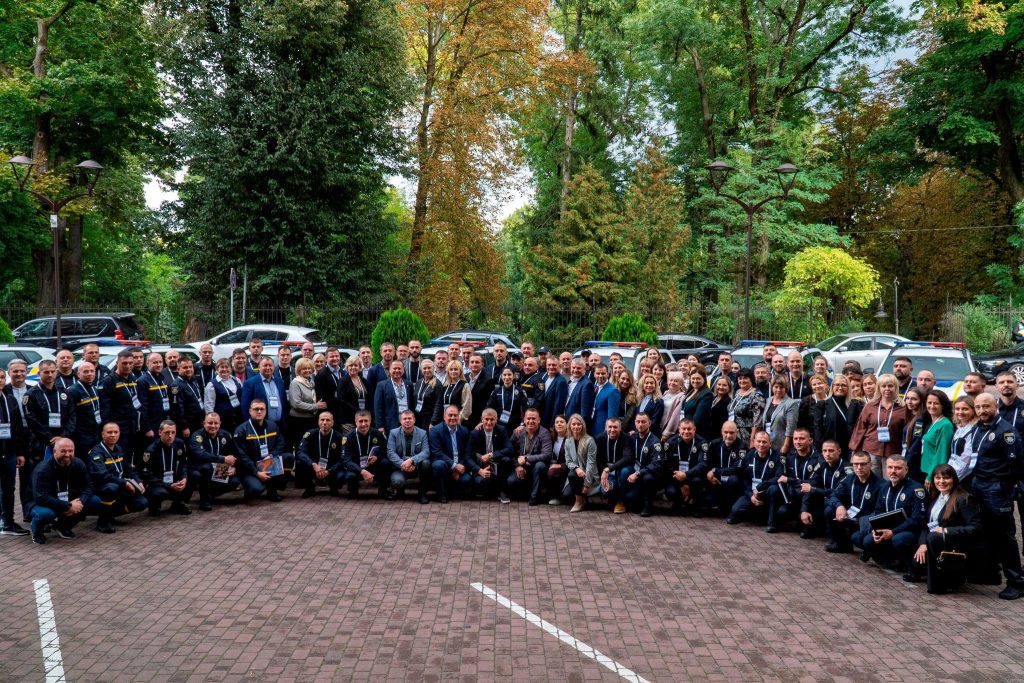The event became a large-scale platform for dialogue between state structures, communities, and international partners.
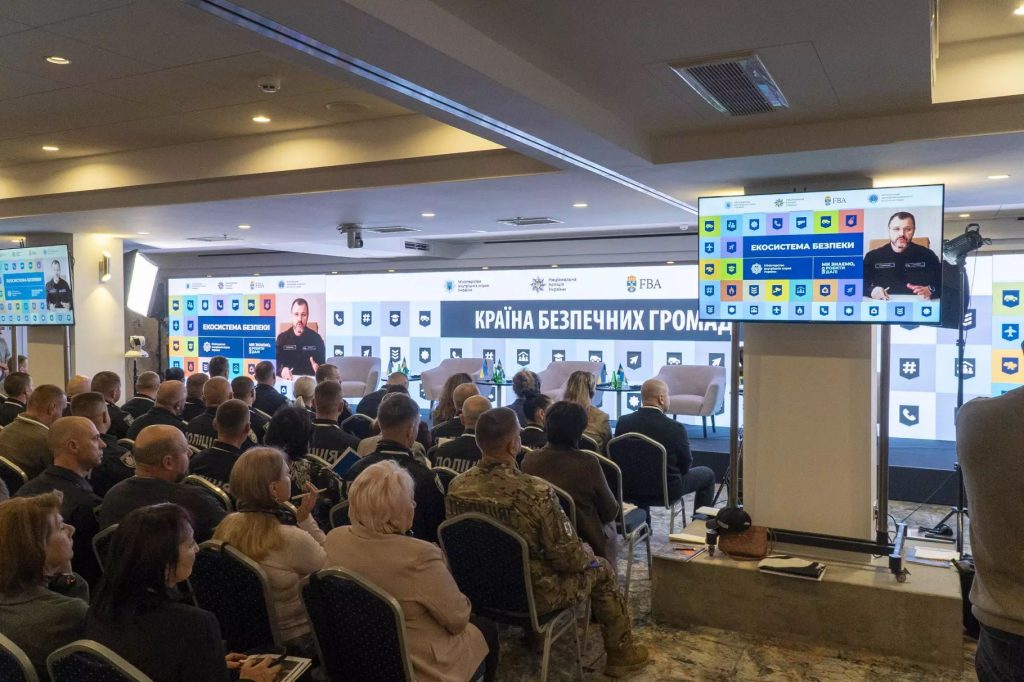
The Forum was organized by the Folke Bernadotte Academy, the National Police of Ukraine, and Dnipro State University of Internal Affairs with the support of the Ministry of Internal Affairs of Ukraine within the framework of implementing Sweden’s Strategy for Recovery and Reforms in Ukraine for 2023–2027.
The Forum became a space for exchanging experiences, strengthening mutual trust, and developing practical solutions to enhance community safety under martial law conditions. The event was attended by over 100 representatives of government bodies, police, SES, local self-government, public organizations, charitable foundations, and international partners, who discussed how to jointly create a sustainable public safety system where communities act not only as recipients but as active creators of security initiatives.
Welcoming remarks to the participants were delivered by the Extraordinary and Plenipotentiary Ambassador of Sweden to Ukraine Martin Åberg and a representative of the Folke Bernadotte Academy Maria Öredsson.
“Sweden is proud to be a co-organizer of this Forum. By working together, we will strengthen community trust. This is the foundation of Ukraine’s recovery and its future within the European Union. Sweden’s support for Ukraine is unwavering. Europe’s support must remain unwavering.”
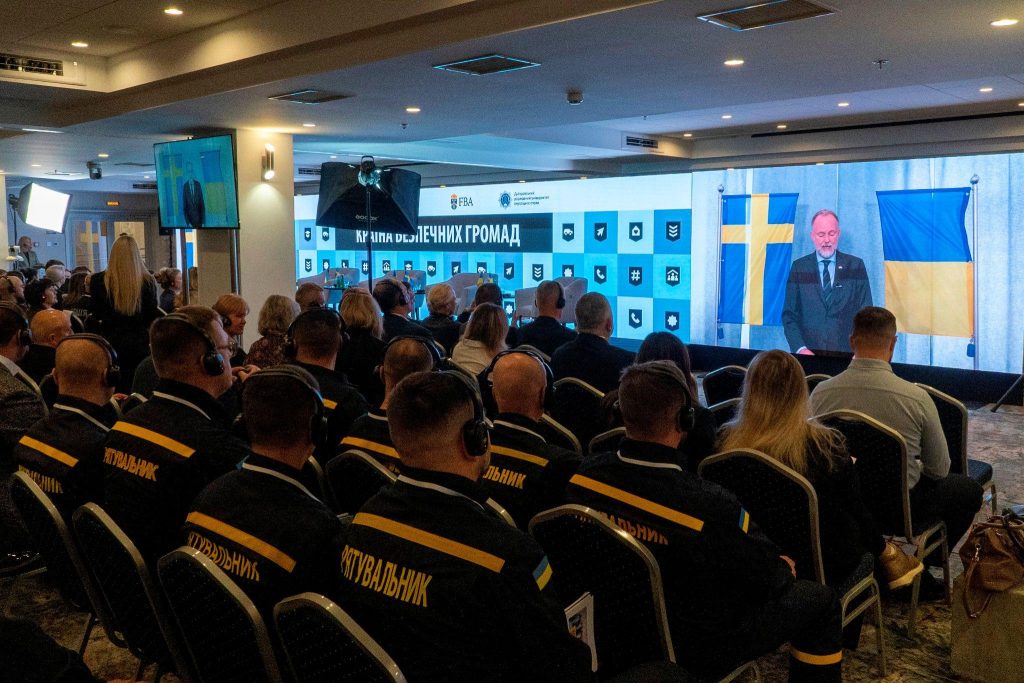
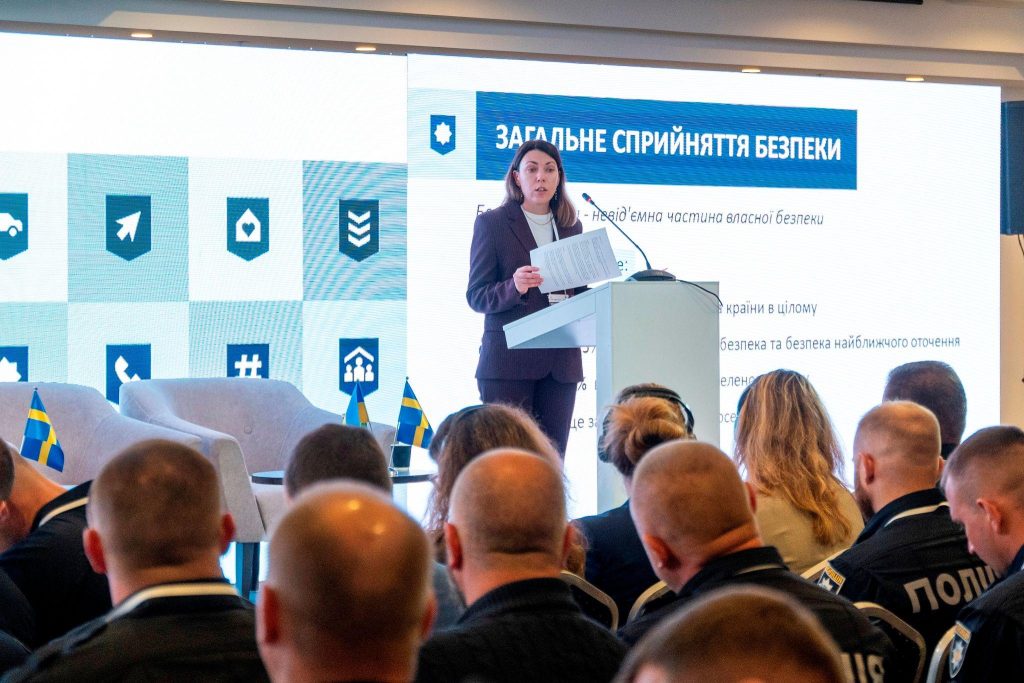
In the opening speech, the Minister of Internal Affairs of Ukraine Ihor Klymenko presented the strategic vision of the MVS — “From Response to Resilience: A New Security Architecture for Communities.” He emphasized that under wartime conditions, trust and cooperation between the police, communities, and international partners are the foundation of safety.
“The topic of safety has always been and remains one of the most important. Despite unprecedented challenges, the MVS of Ukraine continues to care for the safety and peace of every community. We are implementing the concept of a safe environment that works to protect every citizen and every settlement. And the key to effectively implementing safety initiatives is reliable cooperation with communities. First, this is the “Community Police Officer” project, which clearly confirms this, becoming one of the most modern, prominent examples of such work. It has helped make the police closer and more open to people. The safety of every region, every community is our common cause and common responsibility. Strong partnership, trust, and cooperation allow building a truly effective, flexible, and modern protection system that meets the challenges of the time and ensures peace and stability in every corner of Ukraine.”
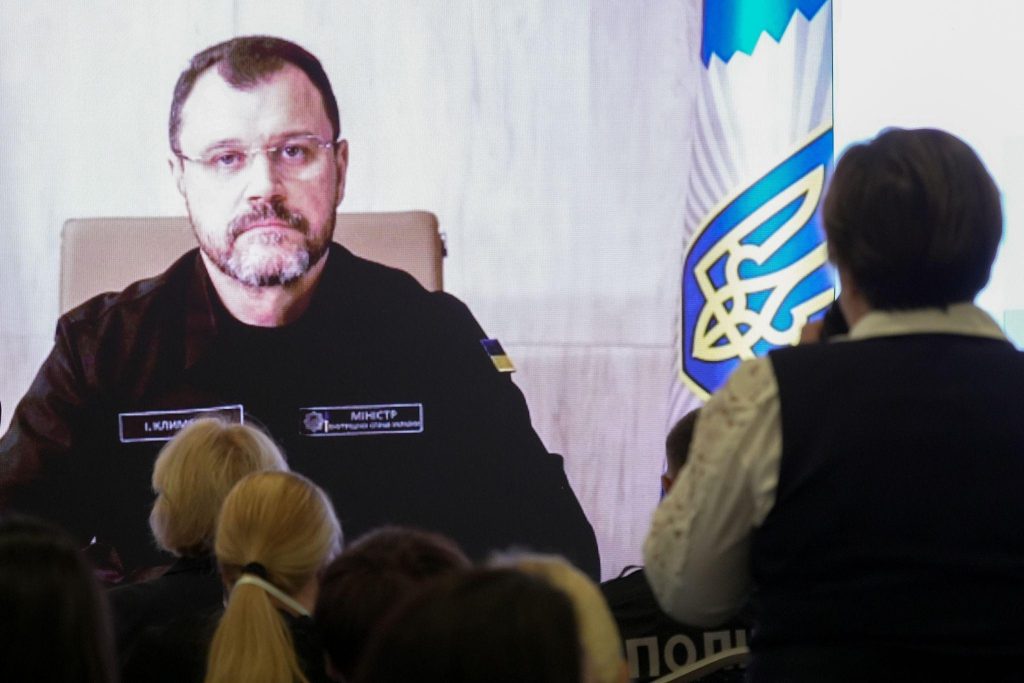
During the first panel discussion, “The Security Sector During Wartime: An Example of Successful Adaptation to New Realities,” the Head of the National Police Ivan Vyhovskyi shared the experience of police transformation during wartime. The police remain at the forefront of the state’s safety — from the front line to every community. Our units fight alongside the Armed Forces, conduct demining, evacuate, rescue, restore order, and trust.
“Under conditions of war and internal challenges, the National Police continues to implement comprehensive solutions to ensure people’s safety. Regarding key projects and the development of the National Police, of course, this is the ‘Community Police Officer,’ and this is one of the most successful projects. The main criterion of our work is the trust of the population. The CPO is about trust, interaction, and constant communication. This project already covers 80% of the country’s territorial communities. This is more than 1058 communities in 23 regions. No less important is the work of officers within security initiatives together with communities, volunteers, active residents — about 13,000 projects have already been implemented. From road safety measures to improving settlements. We will continue to develop these directions so that every resident of Ukraine, regardless of the settlement, including in frontline territories, feels safe and feels our protection and support.”
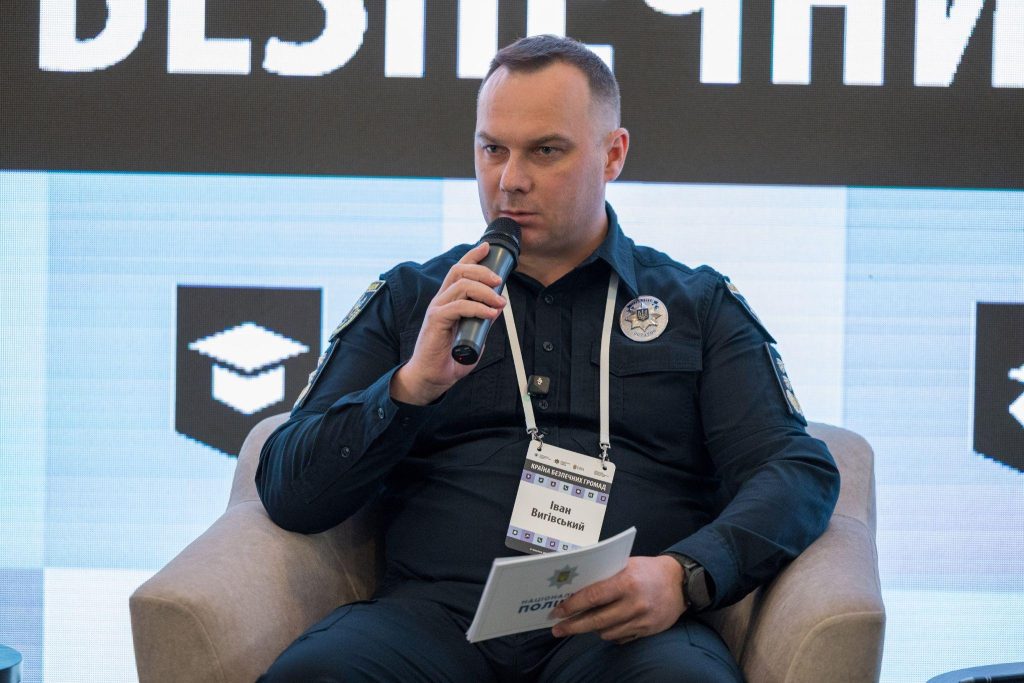
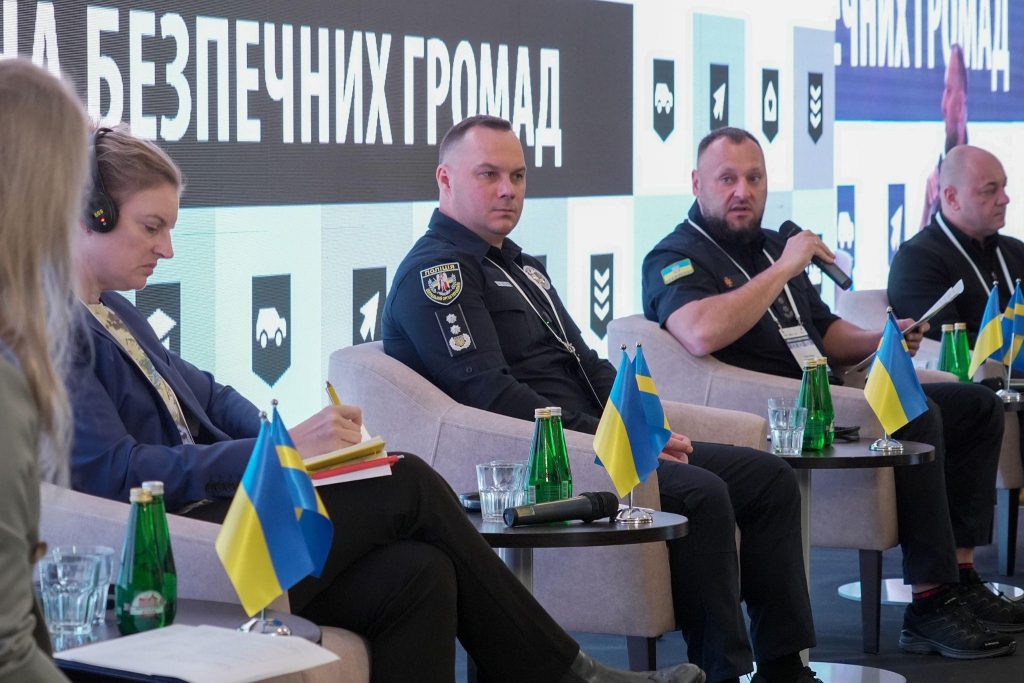
Their developments were also presented by the Deputy Head of the National Police Oleksandr Fatsevych, Deputy Director of the Civil Protection and Preventive Activity Department of the SES of Ukraine Oleksandr Kondratenko, expert of the Folke Bernadotte Academy Minna Nauclér, and Acting Rector of DSUIA Ihor Mahdalina.
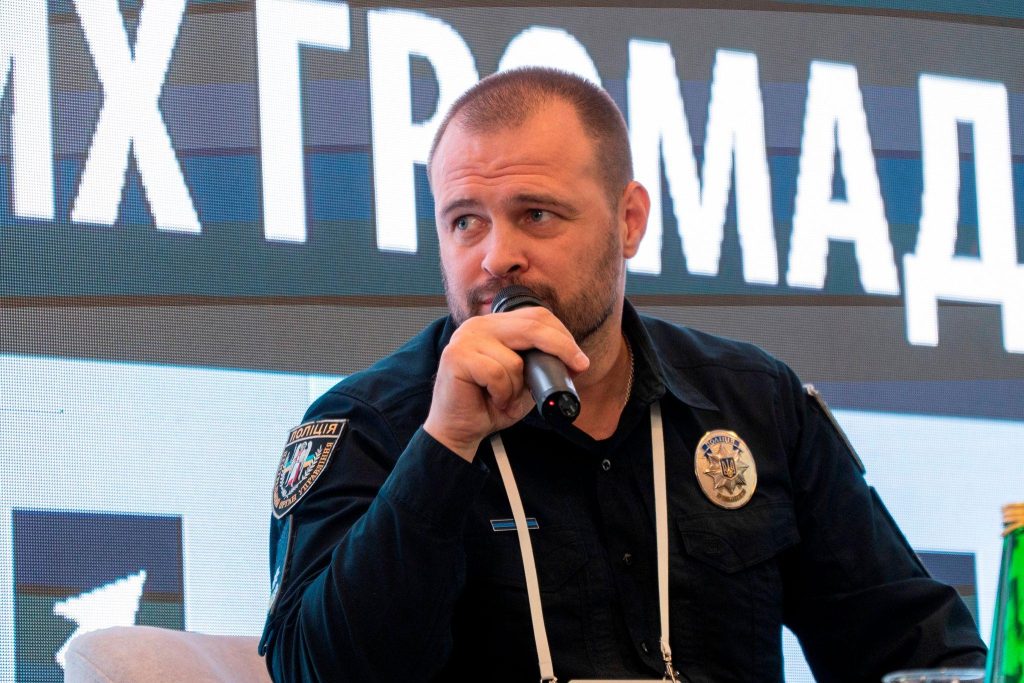
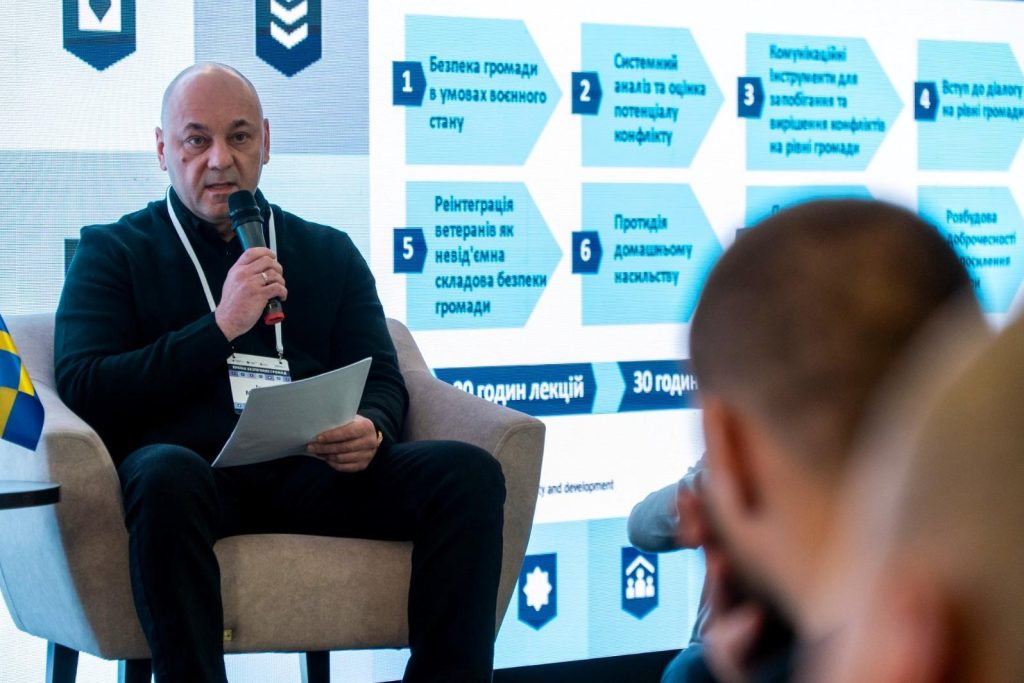
Ihor Mahdalina presented the institution’s experience in training future community police officers. In his speech, he emphasized how the transformation of the security environment influenced the updating of educational programs, improvement of methodological approaches, and the formation of key professional competencies in education seekers necessary for effectively performing tasks in modern conditions.
Throughout the Forum, three panel discussions were held, during which the following were discussed: the role of the community officer in strengthening trust between the police and residents; Community Policing practices as an example of partnership between the police, communities, and rescuers; challenges of frontline and de-occupied territorial communities, in particular issues of evacuation, humanitarian aid, mine safety, and psychological support for the population.
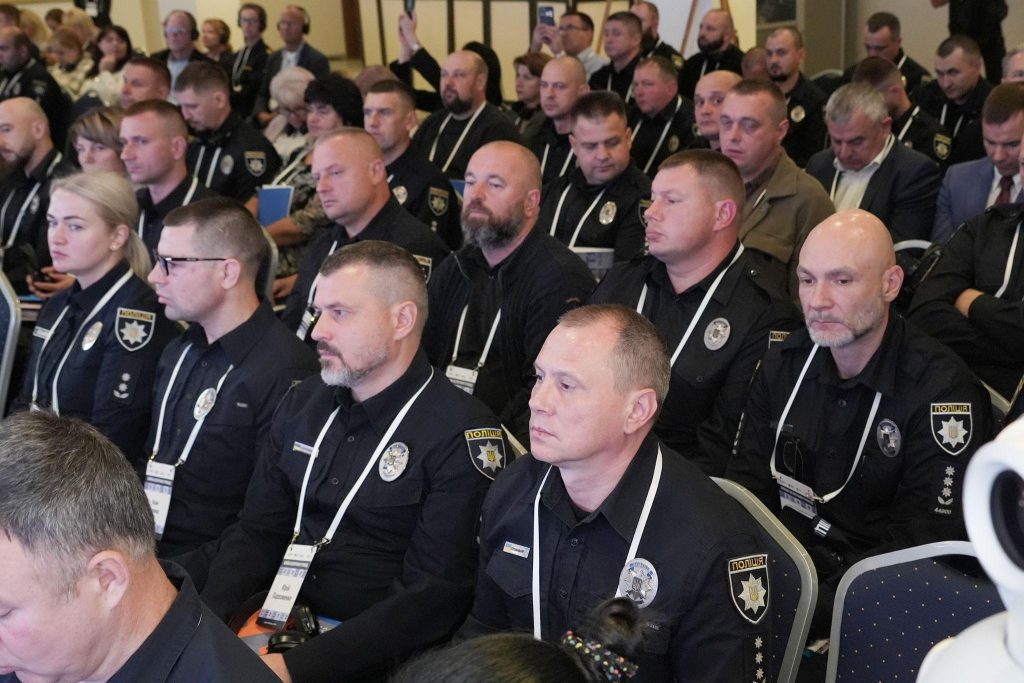
Representatives of local self-government, community police officers, rescuers, public organizations, and international experts from Sweden joined the discussions.
During interactive sessions, participants jointly developed solutions to eliminate barriers to the development of a safe environment and formulated proposals for a joint document that will define further steps in building safe and resilient communities.
Based on materials from the Communications Department of the National Police of Ukraine
— 324


